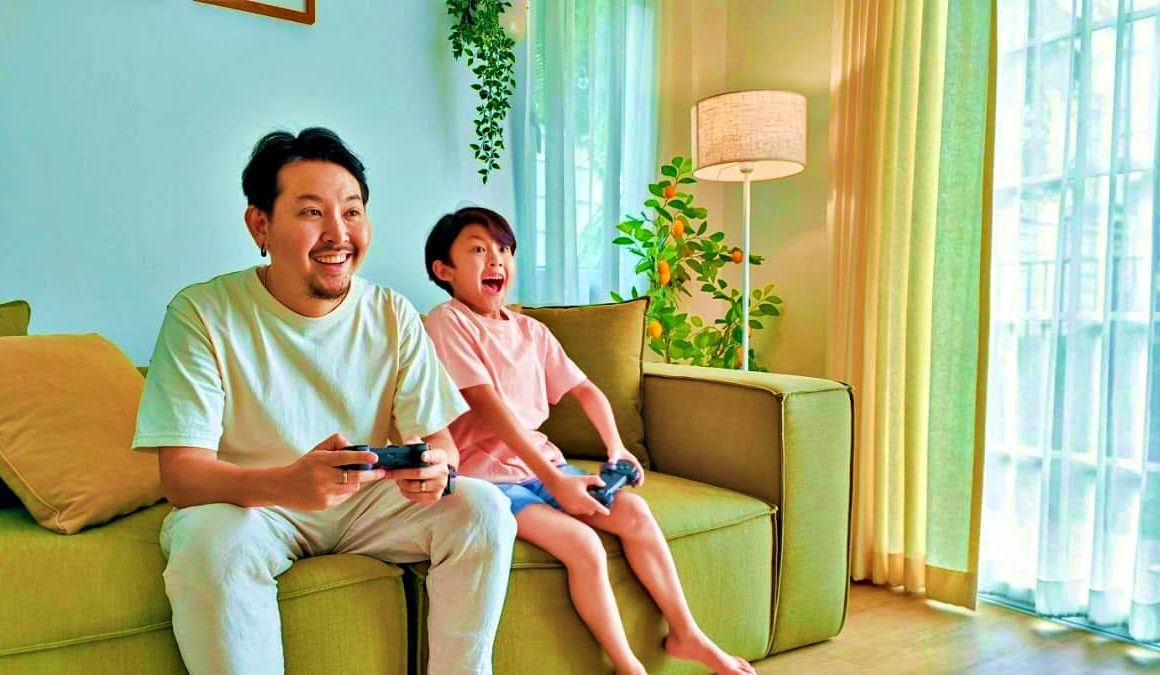Children love online gaming, and it’s no surprise they do it, considering it offers them fun and interactive experiences that entertain them in a way nothing else can. However, as a parent, you are concerned for their safety because online gaming comes with particular risks. You are probably aware that your kids are exposed to privacy issues, cyberbullying, or in-game purchases that can have a negative impact on their wellbeing.
You want to protect your children from all dangers, and when it comes to online threats, you can achieve this by identifying the risks and teaching them how to stay safe when gaming. This blog explores the ways in which you can help your children stay safe while enjoying their favourite online games.
First, understand what risks are associated with online gaming
If your kids have just started playing online games, you might not be aware of the complexity of digital threats they are exposed to. For example, cyberbullying is one of the greatest issues of the moment because your children can receive hurtful comments or get caught in hurtful actions without their consent.
It’s vital to stay in touch with what happens in the gaming world so you can prevent your children from getting exposed to harmful interactions that might affect their emotional and mental health. Also, it’s important to know that online predators take advantage of games to manipulate young players.
Your kids’ privacy is also at risk when playing online games because the majority of platforms require them to provide personal information. Make sure you educate yourself on the signs of a data breach. You can find information at sources like Data Breach Compensation Expert.
In addition, online games allow players to message each other, which could transform into a privacy issue if your kids share their sensitive information. You should monitor the settings of your children’s gaming so you can ensure they don’t engage in behaviours that put their privacy at risk. When you understand the risks associated with online gaming, you can prepare strategies to protect them.
In-game purchases could also become dangerous when your kids buy something without discussing it with you first. Some online platforms encourage children to spend money on upgrading their characters or purchasing items that could help them advance in a game. You should always know what games your children play and familiarize yourself with their requirements to prevent taking any financial risk.
Teach your children how to stay safe online
As mentioned earlier, one of the greatest dangers when your kids are playing online games is that they might be tempted or convinced to share sensitive information. Online gaming platforms facilitate engagement with other players, so they discuss with strangers, who might not have genuine intentions and ask them to reveal their real name, address, or other details. Children don’t realize the risks they expose themselves to when they tell strangers their real names, school addresses, or phone numbers, and it’s your role to explain why these are private details they shouldn’t share with someone they met online.
When discussing the importance of online privacy with your kids, try to keep things simple. Explain in words they understand, and follow up with them regularly to find out what kind of activities they engage in online.
Use parental control options
You already know that most apps include parental control features, and if you haven’t used them until now, you might want to have a look into them because they enable you to protect your kids online. Parental control options allow you to manage your children’s interactions and prevent unwanted purchases. You’ll find it easier to enforce some proper gaming safety rules, so learn how to set them up in the games your kids play, and keep excessive spending and cybercriminals at bay.
Most games come with built-in parental control features, making it easy to set up parental control. When your child plays games on Xbox or PlayStation, you can block the games you don’t find educative, stop purchases, and limit screen time. Both Xbox and PlayStation let parents setup parental controls.
Make sure you also keep a close eye on their chat activity and restrict who they can manage to prevent them from interacting with people who might harm them. You can limit friend requests and turn off chatting with users they don’t know.
Encourage them to discuss with you about their gaming activities
One of the most effective ways to keep your children safe online is to discuss with them openly about their gaming activities. Start by taking an interest in the games they like, ask them questions, and spend time in the same room they are playing, so you can learn more about the game. Make sure they feel comfortable sharing with you their gaming experiences, and whether they made online friends or chatted with someone new recently.
A simple question such as “Did something unusual happen today when you were playing?” could help you uncover suspicious behaviour.
Make sure they play age-appropriate games
It’s paramount to ensure your kids play age-appropriate games when making efforts to protect them from online threats. Games are designed for each age group for a reason: young children aren’t ready to fully understand some behaviours. For them, some level of violence might turn harmful, and it’s best to prevent their access. Check the list of games your kids want to play, and add to their library only those they are mature enough to play. This will also ensure a more enjoyable experience for them because it is tailored to their preferences and skills.
Set a good example
Kids aren’t the only ones who play online games. They might have inherited the passion from one of their parents, and if this is the case, you should provide them with a good example. They are always watching what you do, so regardless of whether you’re playing games on your computer or Xbox, you should always show respect toward other players, have healthy gaming habits, and communicate responsibly.
It’s your responsibility to keep your kids safe when they play online games. This article provides you with a couple of recommendations, but we encourage you to educate yourself about the subject.
Image source: Unsplash









